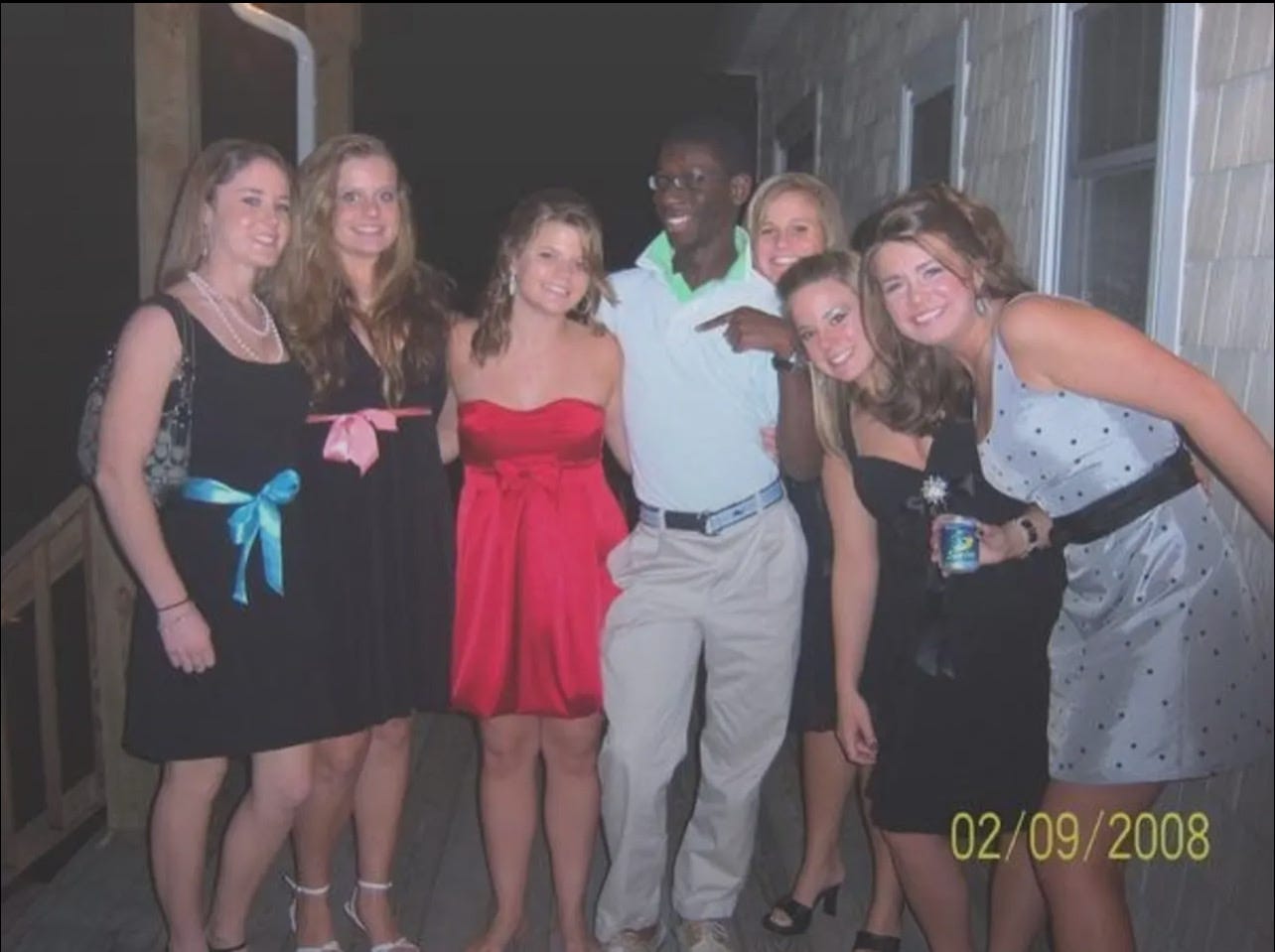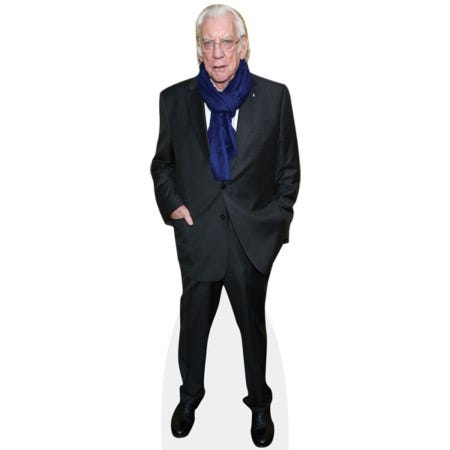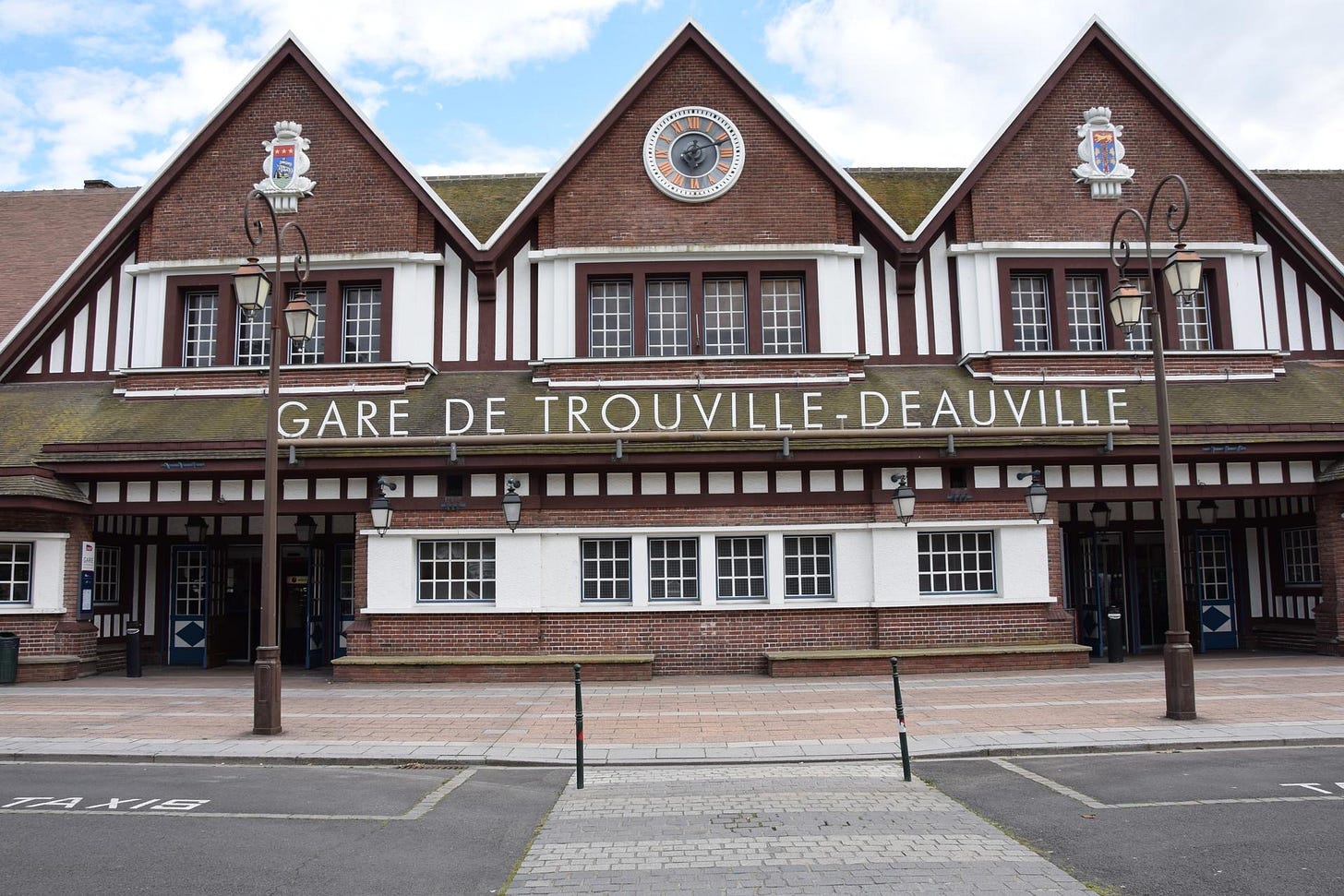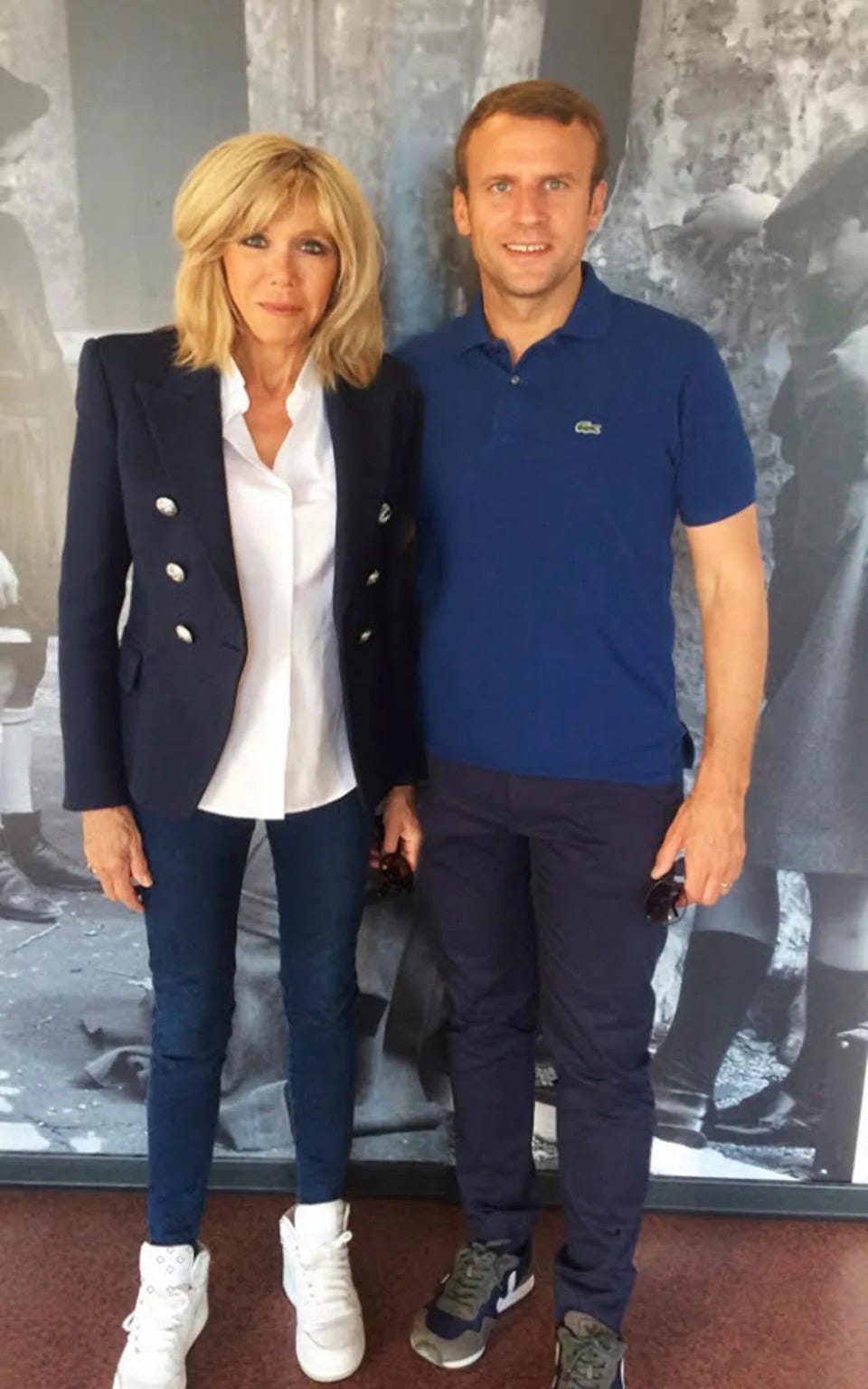The realization that I was no longer in Deauville hit me with the force of a Vélib’ to the shin. I stepped out onto Boulevard Magenta to grab a croissant and a baguette, two things that, just days earlier, I acquired in total silence under a blue sky while birds chirped in surround sound. Instead, I was greeted by someone yelling “TA MÈRE!” across the street, a near-death collision with a Deliveroo cyclist, and the unmistakable perfume of hot piss simmering in the gutter. Paris, mon amour. We’re home. But should we be?
I had only been gone for 48 hours after arriving back from the South….
And yet, I’d tasted something else. Something dangerous. Something addictive.
Silence. Cleanliness. Eye contact with old white people that didn’t feel like a hate crime.
Let’s rewind.
My boyfriend and I had just returned from the South, where I’d been working in Cannes (glamorous in theory, exhausting in practice), when his parents suggested we join them in Deauville to “help open the house.” Innocent enough. I had never been to Deauville. All I knew was: there’s a film festival, and there’s a Chanel bag named after it. Naturally, I packed my mental anthropologist’s notebook and got on the train.
The Train: La Petite Bretagne Meets La Grande Bourgeoisie
The first sign something was off: the train itself. Shockingly clean. Quiet. Free Wi-Fi. No screaming children. I could smell Chanel No. 5 from the seat in front of me. My fellow passengers ? Imagine if Petit Bateau opened a pop-up shop inside a J.Crew catalog. Stripes. Stripes everywhere. It looked like the Normandy landing, if the troops had been invading from Saint-Germain-des-Prés with weekenders and matching Le Monde subscriptions.
The men looked like Donald Sutherland. Tasteful monochrome suits, every one of them with artfully mussed hair, whether by gel, a €200 cut, or the coastal breeze. I’ve never seen this many scarves on men not trying to dodge child support.
Deauville Station: Clean, White, and Rich
We pulled into Deauville, and the train station looked like it had been scrubbed with a toothbrush. Not a gum wrapper in sight. There were maybe five Black people disembarking, including me, and of those, three were giving full #HardWigSoftLife. You know the TikTok: women with crunchy wigs and Dior Book Totes and rich white men trailing behind them like obedient golden retrievers. The wigs may be hard, but the lives? Plush. These women looked like they'd never paid for a drink or a train ticket in their lives. I respect them deeply.
My boyfriend’s dad picked us up in a silver Porsche and just like that, we assimilated seamlessly into the socioeconomic biosphere of this seaside Versailles.
I was told we were heading to a “little ranch house.” What we arrived at was less “ranch” and more storybook fortress. I won’t say more (privacy!), but just know that if there’s a war, I’m hiding out there.
Town Vibes: Welcome to MacronWorld™
Later, we piled into cars Succession-style and drove into town. The first thing I thought: Why does everyone look like Brigitte or Emmanuel Macron? Crisp white shirts. Polo collars. Boat shoes. Zero logos. It was like a militia of discreet wealth had taken over an otherwise picturesque beach town.
And I mean discreet. Every Birkin I saw had its logo turned inward, true IYKYK chic. Every woman looked like she’d just returned from pilates with her chiropodist and her art dealer. Every man looked like he had a second family in Marrakesh and a standing lunch with Sarkozy.
Even the one homeless man I saw, one!, looked like he’d been styled by Jean-Paul Gaultier. A red beanie, a blue-and-white striped sweater, weathered boots. It was giving “marinière-core.” It was on brand. In Deauville, even poverty is in palette.
No loud brands. No noise. No chaos.
Race, Class, and Roaring Lamborghinis
One loud thing did happen: a Lamborghini roared past us, and everyone on the street, including us, turned and gagged and gawked in unison. The man driving it? He said hello to my boyfriend’s father by name. Of course. That’s the thing about Deauville: it’s not just a location, it’s pretty much a members-only extension of Paris. When you leave the city, you don’t actually leave the social order, you just rearrange the background scenery. The cast remains the same.
It’s also very, very white. Like, toothpaste commercial white. But unlike other places in France, I didn’t feel stared at with suspicion. I was stared at like I was part of the scenery, like an unexpected, interesting accessory. There was even a sweet moment when I made eye contact with a young Black girl on the street and we exchanged the silent, knowing smile of the tokened but thriving. We both knew: it’s not our world, but we’re visiting.
On Discretion and Dog Whistles
Everything in Deauville is hushed, restrained, and pristine. It made me think about how, as I get older, I crave cleanliness and quiet, not in a “gentrify this block” way, but in a “please stop screaming on the sidewalk at 8am” way. I almost tweeted something about it, but then I remembered: “clean and safe” is now code. Code for not too many immigrants. Code for back to how things used to be. And while Paris was never exactly a hygiene capital, there’s something sinister in how often people frame chaos as coming from the margins.
Identity Crisis via Docksiders
As we left town, my boyfriend’s dad casually suggested we come back in the summer. Something about long weekends, horses and the countryside. Harmless, right? But that’s when the existential spiral began. Because I grew up in a place like this. I grew up in polos and Sperrys and summer homes and private schools. And when I cut off my family, I thought I’d cut off that world too.

But there I was, 17 years, 1 Navy tour, and various career reincarnations later, staring through a boutique window at a pair of blue docksiders like they were haunted relics from a past life. The ghost of a boy who once believed grey New Balances were the only sneakers that wouldn’t get him disowned. The boy who thought Eurotrash fashion was tacky, before becoming its biggest fan.
Right now, as I write this, Sirens is playing in the background, Netflix’s latest hit, set in a wealthy coastal town full of white women with curated breakdowns and husbands in pastels. It’s fiction, but barely. The show feels like a dispatch from a parallel universe I used to live in. Or maybe still do.
So who am I now? Am I still that preppy kid in the striped Vineyard Vines shirt? Or am I the Parisian mess in Rick Owens Kiss boots with a septum ring and an attitude problem? Or, terrifyingly… am I both?
Have I been pretending this whole time? Do I secretly long to be the kind of man who owns horses and wears light blue everything? Is that my final form?
And what if I say yes?
What if I pack a polo?
What if I never come back?








Encore! This is fabulous
sharp, witty, perceptive